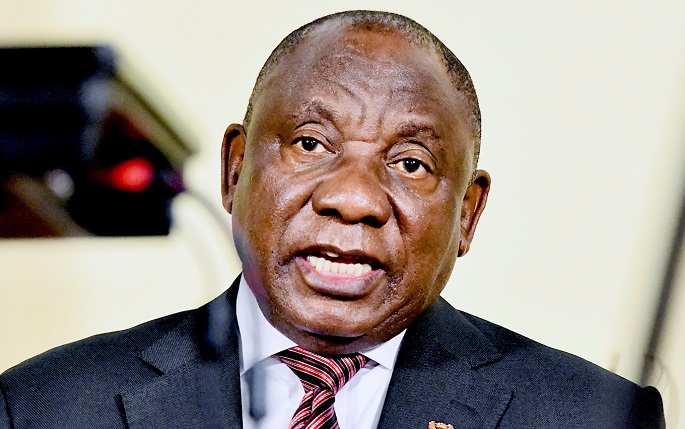Lockdown significantly reduces infection rate in S. Africa: president
Published : 31 May 2020, 21:08
Amid scepticism about its effectiveness, South African President Cyril Ramaphosa on Sunday defended the COVID-19 lockdown which he said has "significantly reduced the rate of infection."
Before the lockdown the doubling time of coronavirus cases was two days but the lockdown prolonged the time to 15 days, Ramaphosa said at a virtual engagement with the South African National Editors Forum.
South Africa imposed a level-five lockdown on March 27 and later eased it to level four on May 1.
During the easing of the lockdown -- with the implementation of level four, the doubling time of coronavirus cases was 12 days, Ramaphosa said.
"Now, after 65 days of lockdown, we can reflect on how effective this phase of our strategy has been," he said.
South Africa has started to flatten the curve, said Ramaphosa.
As of Saturday, the country recorded a total of 30,967 confirmed cases and 643 deaths.
"This is a case fatality rate of 2.1 percent, which is far lower than the global average of 6.4 percent and the European average of 8.5 percent," Ramaphosa said.
The Western Cape province, he said, has been hardest hit by the disease so far.
The province currently accounts for nearly 65 percent of all confirmed cases, and the doubling time of cases in the province is nine days, as opposed to 12 days nationally, according to Ramaphosa.
"It is of the utmost importance that we reduce the rate of spread in the Western Cape and we do everything possible to prevent other parts of the country from following a similar trajectory," he said.
As the country moves to alert level three on June 1, South Africa should expect an exponential rise in cases, and "we need to deploy all the means at our disposal to continue to flatten the curve," the president said.
"Our approach to this pandemic has been informed by the view from the scientific community that most South Africans are likely to be infected by the virus at some point," he cautioned.
Alert level three will allow eight million people to return to work as most of the economic sector will be reopened.
June 1 "marks a significant shift in our approach to the disease, from lockdown to intensive public health management," Ramaphosa said.
With the assistance of various governments, companies and foundations, South Africa has been able to mobilize significant quantities of personal protection equipment, other medical supplies and ventilators, said Ramaphosa.
"Our attention has not been limited only to South Africa, but have been working with other leaders to ensure that Africa has the resources it needs," the president said.
South Africa, he said, continues to work with partners to import materials when supplies are short.
The lockdown would only delay but could not stop the spread of the virus, he said.
The president called on South Africans to brace for a significant increase in infections following the easing of the lockdown.


